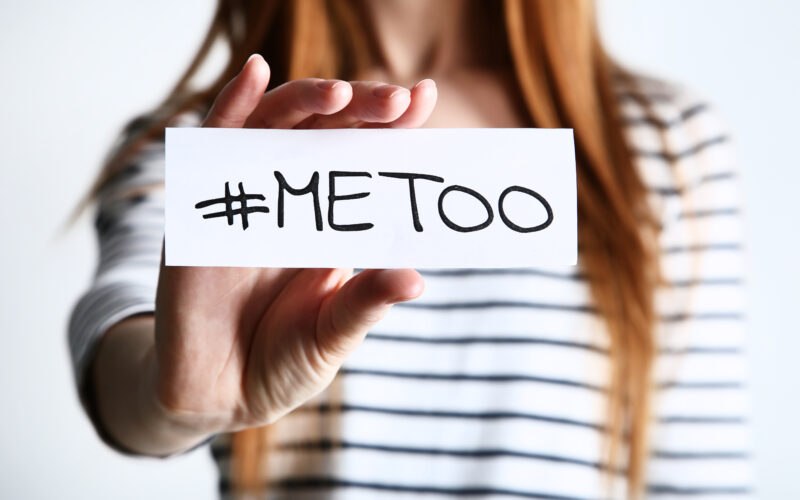The #MeToo movement, which gained global prominence in 2017, marked a watershed moment in the fight against sexual harassment and assault. It empowered countless individuals to share their stories and sparked a worldwide, cultural reckoning across industries. At the center of this movement was the criminal case brought in New York against Hollywood producer Harvey Weinstein, whose conviction seemed to symbolize a turning point. The recent reversal of that criminal case may, at first, appear disheartening but a closer look at that reversal, only strengthens the reasoning behind filing a civil suit against a perpetrator, when a prosecution is not likely to be successful or even pursued, as is often the case. When you or a loved one has suffered a sexual or physical assault, you can turn to us for strong, compassionate help. At Jacobs Injury Law, we provide discreet, supportive help for people, who have been assaulted and who are looking for justice.
The Birth and Rise of #MeToo
The phrase “Me Too” was first used by activist Tarana Burke in 2006, but it wasn’t until 2017 that #MeToo became a global phenomenon via a hashtag on Twitter (now known as X). Actor Alyssa Milano’s tweet encouraging survivors to share their stories using the hashtag ignited a viral movement. Within days, millions of people across the world shared their experiences of sexual harassment and assault, revealing the pervasive nature of these issues. The movement quickly transcended social media, leading to real-world consequences. High-profile figures in entertainment, politics, and business faced accusations and repercussions. Companies revised their policies, and legislators introduced new laws to address sexual misconduct. #MeToo became more than a hashtag; it evolved into a cultural shift demanding accountability and change.
The Weinstein NY Criminal Case
Harvey Weinstein, once a powerful Hollywood producer, became the face of the #MeToo movement when numerous women came forward with allegations of sexual misconduct against him. The New York Times and The New Yorker’s investigative reports in 2017 opened the floodgates, encouraging more survivors to speak out. Weinstein’s subsequent arrest and criminal trial were seen as a test case for the #MeToo movement. His felony sex crime conviction in 2020 was hailed as a victory for survivors and a sign that even the most powerful can be held accountable. The resulting 23-year prison sentence seemed to mark a new era of justice for sexual assault survivors.
Understanding the NY Court’s Reversal Decision
In April 2024, New York’s highest court, the Court of Appeals, overturned Weinstein’s 2020 conviction, citing procedural errors in the trial process. The court found that the judge had improperly allowed testimony from women whose allegations were not part of the criminal charges, potentially prejudicing the jury. That rule on testimony is specific to New York in criminal cases. It’s crucial to understand that this decision was based on procedural grounds rather than a reassessment of Weinstein’s guilt or innocence. The court’s ruling focused on ensuring a fair trial process, which is a fundamental principle of the justice system, irrespective of the question of guilt or innocence.
Impact on the #MeToo Movement
The reversal of Weinstein’s conviction has undoubtedly been a blow to many supporters of the #MeToo movement. While it could discourage survivors from coming forward or pursuing criminal charges against their perpetrator, it’s important to consider the broader context. That reversal was in a criminal case, not a civil case, where the burden of proof is lower (preponderance of the evidence not reasonable doubt). We discuss this in more detail in an earlier blog post titled “Civil Suits for Sexual Assault Under Wisconsin Law.”
The reversal highlights the challenges of criminally prosecuting sexual assault cases, especially those involving powerful individuals. The burden of proof is higher, a procedural error can require a reversal and a second prosecution. Prosecutors have limited staff and funds to pursue every case with the zeal it deserves if the facts are not wholly and completely supportive of the charge. This is why civil suits offer another venue in the legal system to hold individuals accountable for egregious behavior, even if a criminal case faces setbacks or is not brought by the prosecutor’s office.
Cultural Shifts and the Rise of Civil Suits
The #MeToo movement has already brought about seismic shifts in societal attitudes, workplace policies, and legal frameworks. These changes extend beyond any single case. While the Weinstein case reversal is a setback, it’s important to recognize the #MeToo movement’s broader impact and ongoing relevance. #MeToo has dramatically increased public awareness of sexual harassment and assault, making it harder for such behavior to be ignored or swept under the rug.
While filing a civil lawsuit can be difficult, it is a viable way to seek justice and hold someone to account for their intolerable behavior. Remember, you have the right to seek justice, and people and resources available to support you through this process. Whatever you decide, know that the assault was not your fault, and you deserve support and healing. Take care of yourself, and don’t hesitate to reach out for help when you need it. In Wisconsin, you can contact the Wisconsin Coalition Against Sexual Assault for resources and support. They can help connect you with local services.
How We Can Help
At Jacobs Injury Law, we provide discreet, supportive help for people who have been assaulted who are looking for justice. With over 20 years of legal experience, and having been named one of Wisconsin’s top 50 attorneys, personal injury lawyer Ann Jacobs of Jacobs Injury Law brings a unique set of skills and insight to sensitive cases like these. She has handled sexual and physical assault cases with great sensitivity and resolve.
If you’d like to discuss how we may be able to help you with your sexual or physical assault issue, please contact us. We look forward to hearing from you.
